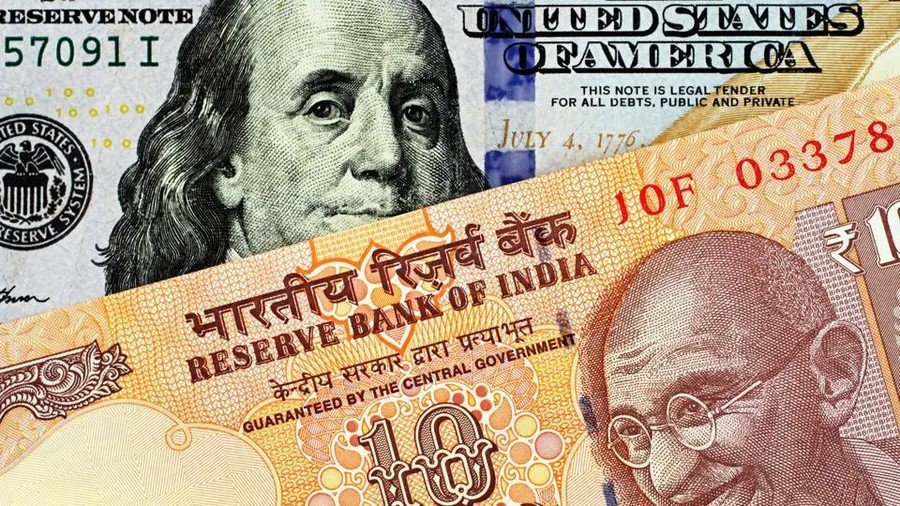Leading investment bank Morgan Stanley has painted a gloomy picture for the Indian rupee against the US dollar. The Indian rupee crashed to a new all-time low of 84.15 against the US dollar on Monday’s closing bell.
To add to its woes, India’s stock market Sensex and Nifty traded in deep red amid fears of a recession in the US. Several stocks fell to their lower circuit, shedding most of its value overnight. Fear looms in the global stock market as the dip slips out.
Also Read: XRP & ADA Price Prediction After Cryptocurrency Market Crash

However, the rupee briefly surged on Tuesday’s opening bell, trading around the 83.94 mark against the US dollar. On the brighter side, India’s stock market opened in the green on Tuesday and is looking to reclaim its lost ground.
Several analysts predict this could be a bull trap as the markets have more chances of a downside. This article will highlight Morgan Stanley’s prediction on the Indian rupee vs the US dollar.
Also Read: US Dollar: Indian Rupee Ranks Second Worst in August
Indian Rupee Will Crash To 85.2 Against the US Dollar, Says Morgan Stanley


Morgan Stanley has forecasted that the Indian rupee could fall to 85.2 against the US dollar during the second half of 2025. That’s a 1.5% dip from its current value of 83.94. The US dollar is in heavy demand from importers following a hike in equity taxes in India.
For the uninitiated, the Indian government, in its recent budget, hiked Long-Term Capital Gains (LTCG) from 10% to 12.5% and also increased Short-Term Capital Gains (STCG) from 15% to 20%.
Also Read: BRICS: Goldman Sachs Makes Major US Recession Prediction
The move was met with massive criticism against the government by the investors’ community nationwide. The increase in stock market and housing taxes, among others, is making the rupee weaker against the US dollar, wrote Morgan Stanley.





